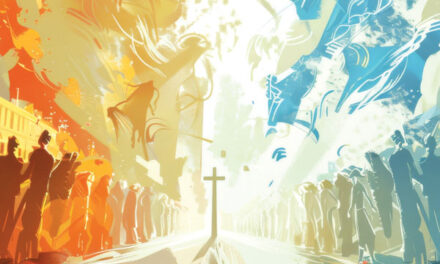If you can imagine how frustrated a preacher would have to be to swear a blue streak, then you might understand the old expression, “It’s enough to make a preacher cuss.”
I grew up in a Baptist church, so it’s safe to say I never heard a preacher cuss. But that changed when I began my Air Force chaplain’s career at Mather Air Force Base.
The Rancho Cordova base is now a civilian airport, but I spent three years there as a first lieutenant under the mentoring of five active-duty chaplains.

While each chaplain enjoyed a well-apportioned office, the biggest office was occupied by our senior chaplain. We called him “Father Z.”
At the time, I was a reservist working a few days each month. My “office” was a few chairs surrounded by a 5-foot fabric cubical, all under the watchful eye of Father Z.
One day, Father Z scheduled me to counsel a young Air Force couple who wanted to be married in our chapel. The potential groom was a timid airman, a clerk from the military personnel section. His fiancée was a 19-year-old civilian, unsure of what military life had in store for her.
At the appointed hour, our chapel receptionist led the couple past Father Z’s closed door and into my cubicle.
I greeted the young people warmly and asked typical premarital questions. “Are you planning a family? Do you practice a faith together?”
The couple gave answers with a nervous edge, using a varied volume of two-syllable yes-sirs and no-sirs. However, as they began sharing their heart-story, they relaxed into easy smiles and comfortable chuckles.
Then, just as I asked how they deal with anger in their relationship, we heard a loud crash in Father Z’s office across from my cubicle. His door flew open and the air ignited with expletives.
Instinctively we ducked our heads. The couple remained in their seats, but like a soldier in a World War I trench, I peeked over the partition to find our profane sniper.
When I returned my attention to the couple, the wide-eyed woman asked in whispered tones, “Doesn’t that man know he’s in a chapel?”
“Oh, I’m afraid he knows,” I said.
“Why?” the airman asked. “Who is he?”
“That’s Father Z and I suppose something got him mad enough to make a preacher cuss,” I said, deadpanning the old expression.
“He’s really a nice guy,” I added, which was my way of telling the shocked couple what the Wizard of Oz said about himself: “Pay no attention to that man behind the curtain,” or in this case, behind our partition.
The incident highlights questions about integrity that I’ve often asked my own parishioners over the years. “Who are you when no one is watching?” “Who are you when it doesn’t seem as though it matters?”
The answers to these questions will determine your integrity. Integrity is gauged by measuring the difference between who you are in public and who you are in private.
Integrity means you remain the same person no matter who benefits.
Honestly, Father Z could be one of the kindest men you’d want to know. He was often respectful, thoughtful and compassionate. Unfortunately, his anger issues put up a smoke screen that hid his goodness from the impressionable couple.
I never did get a bigger office at Mather, and never found out what made Father Z so mad.
However, my time there did give me a bigger sense of a compelling fact. Being an angry person in private only means we are rehearsing the anger that will eventually gain center stage in our public lives.
Norris Burkes can be reached at comment@thechaplain.net. Follow us on Facebook, Twitter and Instagram: @insidesacramento. Burkes is available for public speaking at civic organizations, places of worship, veterans groups and more. For details and fees, visit thechaplain.net.
















